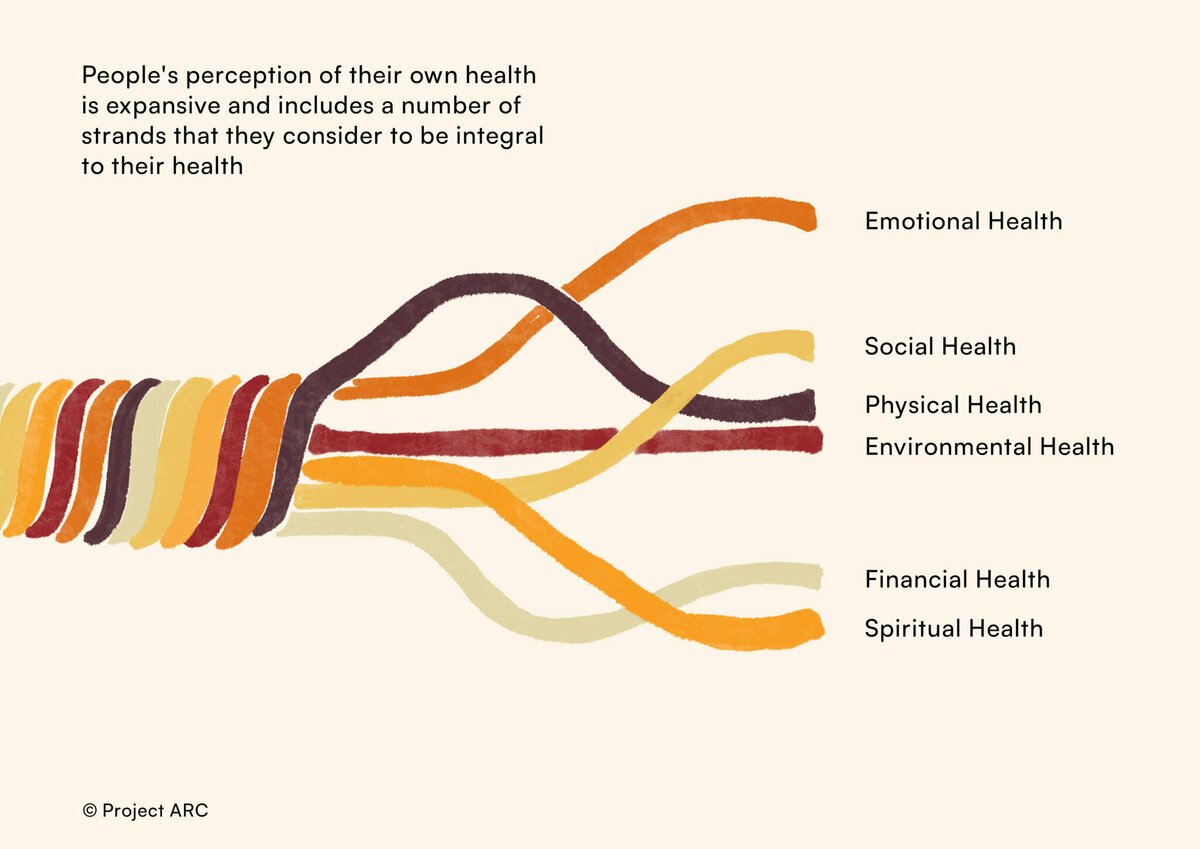Process
A process rooted in design thinking and ethnographic approaches
Strands of Health
Understanding how people make health seeking decisions.

An Expansive Perception of Health §
The strands of health approach responds to the expansive perception of health that many people have, which goes beyond their physical health or a sense of presence and absence of disease to include other aspects of their life. Learnings from Project ARC suggest that this expansive perception of health includes a person’s financial health, social health, environmental health, emotional health and spiritual health apart from their physical health. While it is beneficial to break this expansive perception of health into components for analysis, it should be noted that for most people they are not experienced as discrete components that they consider individually but are more akin to an indivisible whole of entangled concerns that drive their perception of health.
The Strands of Health §
The components of the strand approach can be briefly defined in the following way:
-
Physical health — the ability to perform the daily activities of one’s choice in the absence of illness.
-
Emotional Health — the psychological and emotional wellbeing of an individual.
-
Financial Health — the ability of a person or household to support and look after themselves.
-
Social Health — the ability to create healthy and positive interpersonal relationships with one another to foster a supportive community.
-
Spiritual Health — the feeling that an individual is living a meaningful life, in line with their moral code of conduct and belief system.
-
Environmental Health — the ability to live in a safe, stable environment in which an individual can live their life the way that they choose to.
Building on the Social Determinants of Health §
The strands approach builds on the Social Determinants of Health, which over the past 15 – 20 years has gained widespread acceptance. The World Health Organization (WHO) recognises a number of factors that can influence health in positive and negative ways. To complement and build on these determinants, which are ostensibly conditions that influence the health of individuals as evidenced by over a decade of research, Project ARC team sought to discover and develop the factors that health seekers themselves identify as constituent parts of their health. Our core line of inquiry here was, “what does health mean for individuals and communities”. Unsurprisingly the strands of health we articulated are related to the social determinants of health, but unlike the social determinants of health, which are (or at least understood as) factors that influence health, the strands were, in many ways, for seekers, health itself.
The Strands as an Analytical Tool §
In project ARC the strand approach was developed as an analytical tool to understand people’s motivations behind their decision making during their health seeking journeys and better understand the challenges or frictions they faced on these journeys. We hope that the strands approach can contribute to models of understanding health seeking behavior, and inform design of health based interventions that drive behavior change towards better health outcomes.